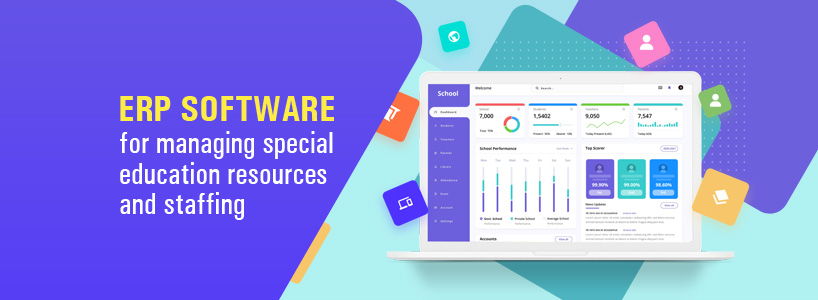ERP Software for Managing Special Education Resources and Staffing

Special education is a complex field that requires careful planning, efficient resource allocation, and effective staff management. Traditional methods of managing these operations can often be time-consuming, error-prone, and inefficient. Enter Enterprise Resource Planning (ERP) Software EduAutomate, a powerful tool that can streamline and optimize special education processes.
Key Benefits of ERP Software for Special Education
1. Centralized Data Management
- Student Records: Store comprehensive student information, including IEPs, assessments, progress reports, and medical records, in a centralized database.
- Staff Information: Maintain accurate records of staff qualifications, certifications, assignments, and schedules.
- Resource Inventory: Track the availability and utilization of specialized equipment, materials, and therapies.
2. Efficient Scheduling
- Staff Scheduling: Create optimized staff schedules that align with student needs, regulatory requirements, and budgetary constraints.
- Resource Allocation: Allocate resources effectively to ensure that students receive the appropriate support and services.
- Appointment Scheduling: Schedule therapy sessions, meetings, and other appointments seamlessly.
3. Financial Management
- Budget Tracking: Monitor budgets for special education programs and track expenditures to ensure compliance with regulations.
- Billing and Reimbursement: Streamline billing processes and track reimbursement claims to maximize revenue.
- Purchasing: Manage purchasing of specialized equipment, materials, and supplies.
4. Improved Communication and Collaboration:
- Real-time Updates: Share information and updates with parents, teachers, therapists, and administrators in real-time.
- Secure Messaging: Facilitate secure communication between staff members and families.
- Document Sharing: Share important documents and reports electronically.
5. Enhanced Reporting and Analytics:
- Customized Reports: Generate customized reports to track student progress, staff performance, and resource utilization.
- Data-Driven Decision Making: Use data analytics to identify trends, optimize processes, and make informed decisions.
- Compliance Reporting: Ensure compliance with federal and state regulations by generating required reports.
Choosing the Right ERP Software
When selecting ERP Software for special education, consider the following factors:
- Customization: The software should be customizable to meet the unique needs of your district or organization.
- Scalability: The solution should be able to grow with your organization as your needs evolve.
- Integration Capabilities: The software should integrate seamlessly with other systems, such as student information systems (SIS) and learning management systems (LMS).
- User-Friendliness: The software should be intuitive and easy to use for staff at all levels.
Security and Compliance: The software should meet strict security and compliance standards to protect sensitive student data.
By investing in a robust ERP solution, special education organizations can achieve greater efficiency, improve outcomes for students, and enhance overall operational performance.
-
14 November, 2024 at 11:39 amThis blog makes complex ideas so approachable.
Add a Comment
Your email address will not be published. Required fields are marked *
Categories
Popular Posts
![Customer, Lead, or Deal? Understanding CRM Sections for Smarter Sales [thumb]](https://blogimages.weblink.in/customer-lead-or-deal-understanding-crm-sections-for-smarter-sales-350x128.jpg)
Customer, Lead, or Deal? Understanding CRM Sections for Smarter Sales
![How EduAutomate Brings Real-Time Visibility to All Admin Operations? [thumb]](https://blogimages.weblink.in/how-eduautomate-brings-real-time-visibility-to-all-admin-operations-350x128.jpg)
How EduAutomate Brings Real-Time Visibility to All Admin Operations?
![How CRM Vendor Management Enhances Your Procurement Process [thumb]](https://blogimages.weblink.in/how-crm-vendor-management-enhances-your-procurement-process-350x128.jpg)